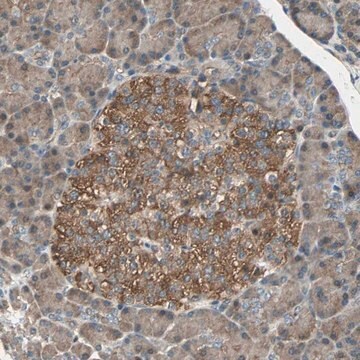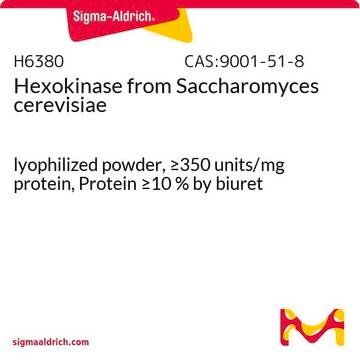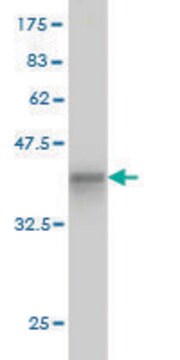MABS1190
Anti-Glucokinase/GCK Antibody, clone 9G1.2
clone 9G1.2, from mouse
Synonym(s):
Glucokinase, GK, Hexokinase-4, Hexokinase-D, Hexokinase type IV, HK IV, HK4
About This Item
Recommended Products
biological source
mouse
Quality Level
antibody form
purified antibody
antibody product type
primary antibodies
clone
9G1.2, monoclonal
species reactivity
human
technique(s)
immunohistochemistry: suitable (paraffin)
western blot: suitable
isotype
IgG1κ
NCBI accession no.
UniProt accession no.
target post-translational modification
unmodified
Gene Information
human ... GCK(2645)
Related Categories
General description
Specificity
Immunogen
Application
Signaling
Glucose/Glycogen Metabolism
Quality
Western Blotting Analysis: 0.5 µg/mL of this antibody detected Glucokinase/GCK in 10 µg of HepG2 cell lysate.
Target description
Physical form
Storage and Stability
Other Notes
Disclaimer
Not finding the right product?
Try our Product Selector Tool.
Storage Class
12 - Non Combustible Liquids
wgk_germany
WGK 1
flash_point_f
Not applicable
flash_point_c
Not applicable
Certificates of Analysis (COA)
Search for Certificates of Analysis (COA) by entering the products Lot/Batch Number. Lot and Batch Numbers can be found on a product’s label following the words ‘Lot’ or ‘Batch’.
Already Own This Product?
Find documentation for the products that you have recently purchased in the Document Library.
Our team of scientists has experience in all areas of research including Life Science, Material Science, Chemical Synthesis, Chromatography, Analytical and many others.
Contact Technical Service






